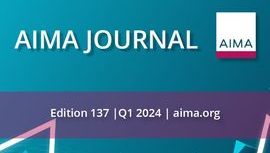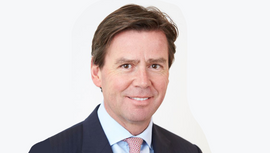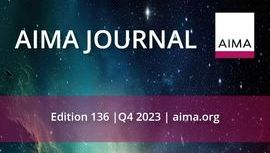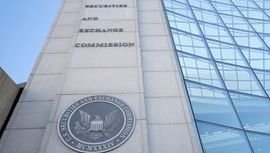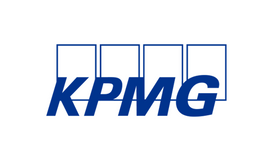Senior Managers and Certification Regime
By Nicholas Colston, Simmons & Simmons
Published: 21 March 2019
The FCA’s Senior Managers and Certification Regime (SMCR) is a regulatory initiative designed to strengthen market integrity and reduce harm to consumers by making individuals more accountable for their conduct and competence.
SMCR came into force for banks in 2016 and is now being extended to include all FCA solo-regulated firms, including asset managers, from 9 December 2019. SMCR will replace the existing UK Approved Persons Regime and is intended to play a pivotal part in changing the culture within financial services in the UK.
In this article, we summarise the key changes under SMCR and suggest some of the practical steps which firms will need to take during 2019 to ensure compliance.
A proportionate application of the rules
Helpfully, the SMCR regime is designed so that its application is based on grounds of proportionality. There are different requirements for different firms based on the size and nature of the firm. The FCA has identified three categories of firms: Limited, Core and Enhanced. Most alternative fund managers will be Core firms, but it will be necessary to take legal advice to confirm your firm status.
The remainder of this article assumes that firms fall into the “Core” category.
Three new regimes which regulate staff at investment managers
SMCR is replacing the Approved Persons Regime, consisting of three main elements:
(i) a Senior Managers Regime which approves Senior Managers under designated functions;
(ii) a Certification Regime for employees whose roles make it possible for them to cause significant harm; and
(iii) a set of Conduct Rules for most other employees within a firm.
Senior Management Functions
Senior Managers must be formally assigned responsibility for areas of the firm’s business which will be documented in a personal Statement of Responsibility, including certain “prescribed responsibilities” which are mandated by the FCA. This may be very different to the current governance structure for some organisations.
If a firm breaches an FCA requirement, the Senior Manager responsible for that area could be held personally accountable if they did not take reasonable steps to prevent or stop the breach from occurring. Individual Senior Managers are likely to be conscious of their personal duty of responsibility.
Given these new rules, it is important to understand which people will be caught as Senior Managers under the new regime. There are six Senior Management Functions (SMFs) which are relevant to Core firms: Chief Executive, Executive Director, Partner, Chair, Compliance Officer and Money Laundering Reporting Officer (MLRO).
The governing functions will depend on the firm’s set up (e.g. whether it is a limited company or a partnership); however, every firm will be required to have individuals appointed as Compliance Officer and MLRO. The rules permit an individual to perform more than one SMF at the same time and for multiple entities under the same Group. This can be a good way to streamline the implementation process.
For fund managers which are set up as LLPs, the fact that an individual is a Partner of a firm and is currently approved as CF4, does not mean they will automatically be performing a SMF. The definition of the Partner function under SMCR now includes a carve out for Partners without management influence.
Junior Partners may not always have substantial involvement in the management of the partnership and would not necessarily fall automatically within the SMCR definition of a Partner. However, for tax purposes, under the salaried member rules, to ensure that Junior Partners are not treated as “employees”, firms are typically structured such that Junior Partners do have influence over the affairs of the business. This means that partnerships will need to consider a balancing act between their HMRC position and the roles performed by Junior Partners in deciding whether it is appropriate to identify Junior Partners as SMFs under the SMCR.
Corporate members of an LLP can also be caught within the definition of a Senior Manager, and may need approval to be a SMF, particularly if the corporate member is a vehicle for exercising management control over the UK firm.
The Certification Regime
The Certification Regime will apply to individuals whose roles make it possible for them to cause significant harm to the firm or its customers. In practice, this is likely to include all existing approved persons who are not Senior Managers (e.g. front office staff performing the current CF30 customer function).
Firms will be obliged to assess and certify the fitness and propriety of their “certification regime staff” and FCA approval will no longer be required. This will require additional due diligence, an annual certification process and a new regime for regulatory references, which will increase the onus on firms to satisfy themselves about the history of their new hires.
Again, it will be important for firms to properly identify their certification staff. SMCR prescribes certain functions which it expects to be certified functions. These include client dealing functions (such as portfolio managers, traders, and advisers), material risk takers, and algo traders.
There is a further complexity for LLPs, that many Partners may not be employees (which has a specific meaning here) and so not technically subject to the Certification Regime.
The Conduct Rules
The Conduct Rules set standards of good personal conduct, against which the FCA can hold individuals accountable. There are two tiers of conduct rules:
(1) the first tier of Conduct Rules which apply to all individual staff, other than ancillary staff; and
(2) the second tier of Conduct Rules which only apply to Senior Managers.
Firms will be expected to train staff on the new Conduct rules and will be required to notify the FCA where disciplinary action is taken against an individual for breach of a Conduct rule.
SMCR implementation projects
Many UK investment managers are treating Q1 2019 as the appropriate time to kick-off implementation projects. If you have not already done so, you should set-up an internal working group, and appoint external advisors such as legal counsel.
Your project plan will need to include scoping steps to identify who is internally caught by the three new elements to the new regime, including: drafting new documentation (including statements of responsibility, updates to employee handbooks), updating HR and recruitment processes (including background checks, references, and annual review processes) and delivering appropriate internal training.
Simmons & Simmons is widely advising clients across the asset management industry on SMCR, including offering clients a Toolkit of template documents, internal training and scoping documentation. We would be happy to further discuss our products and how we can help your firm with your SMCR implementation: http://www.elexica.com/en/resources/microsite/smcr-toolkit

